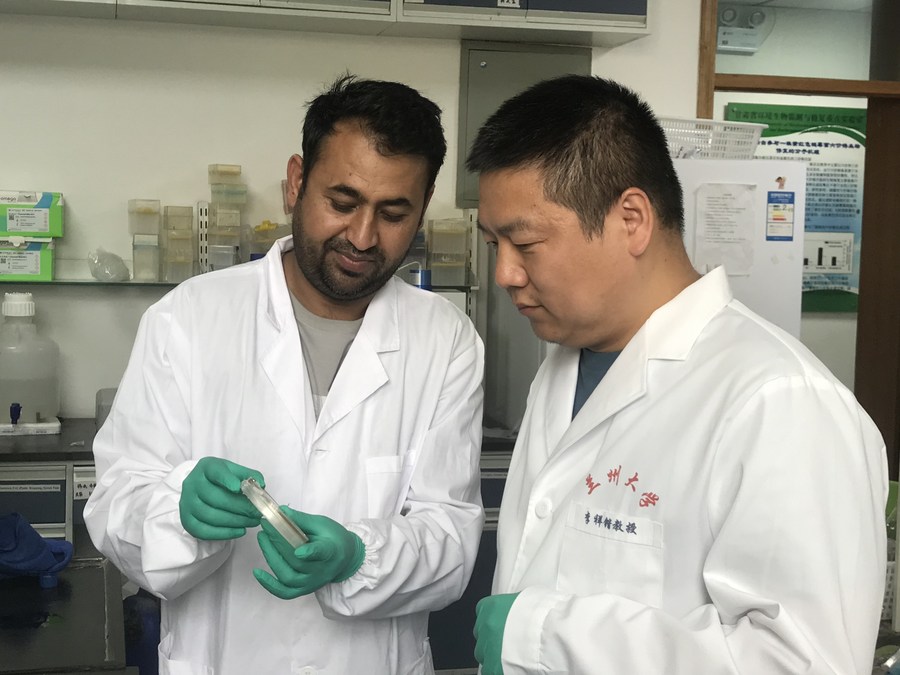LANZHOU, May 26 – An international research team has developed a new method to treat celiac disease, according to Lanzhou University in northwest China’s Gansu Province.
The study conducted by Chinese, Pakistani and other overseas researchers has been published in the journal Food Research International.
Aman Khan, leader of the study and a Pakistani postdoctoral fellow at Lanzhou University, has been engaged in research related to the treatment of celiac disease for several years.
According to Aman, the disease, an immune disorder triggered by gluten ingestion, is quite common in Asian countries including Pakistan, as they eat lots of food made of flour, which contains gluten. He hopes to use his knowledge to help people affected by this disorder.
Inspired and supported by his advisor — Li Xiangkai, a professor with the environmental microbiology group under Lanzhou University, Aman has been isolating probiotic bacterial strains from Pakistani fermented sourdough bread so as to use them in preventing the occurrence of celiac disease.
According to Aman, the celiac disease treatment idea was taken from a previous study conducted by their group. The previous study isolated a probiotic strain from “Jiangshui,” a traditional Chinese fermented food, which could degrade uric acid and upregulate gut microbiota. They then made yogurt with the strain and conducted a two-month human trial on 120 volunteers with hyperuricemia. Results showed that the Jiangshui-yogurt exhibited high degradation capacity for uric acid.
Guided by his advisor, Aman and his team members have successfully isolated probiotic bacterial strains called LZU-GM from Pakistani fermented sourdough bread and finished a series of experiments on mice.
“According to our experiment results and integrative analysis, isolated LZU-GM provides evidence that it can relieve adverse effects of gluten additive food and balance gut microbiota in mice,” said Aman, adding that further clinical trials will be needed to determine the safety and efficacy of probiotics in fermented sourdough bread as a treatment for celiac disease.
Li Xiangkai said they will make yogurt with LZU-GM strains isolated from Pakistani sourdough bread and continue to conduct related experiments. “We are confident that the new solution will be a therapeutic adjunct agent in treating celiac disease,” added Li.
















